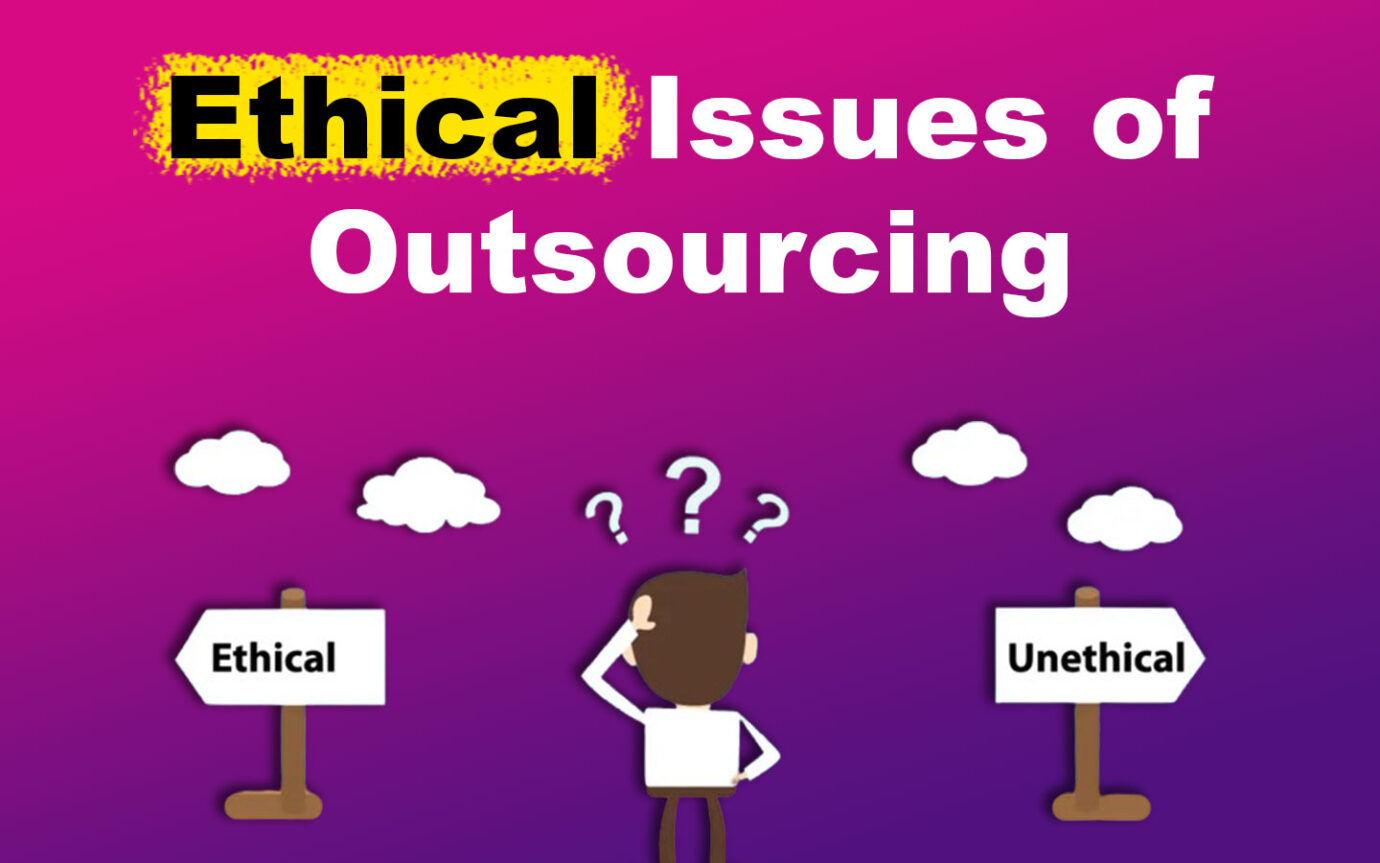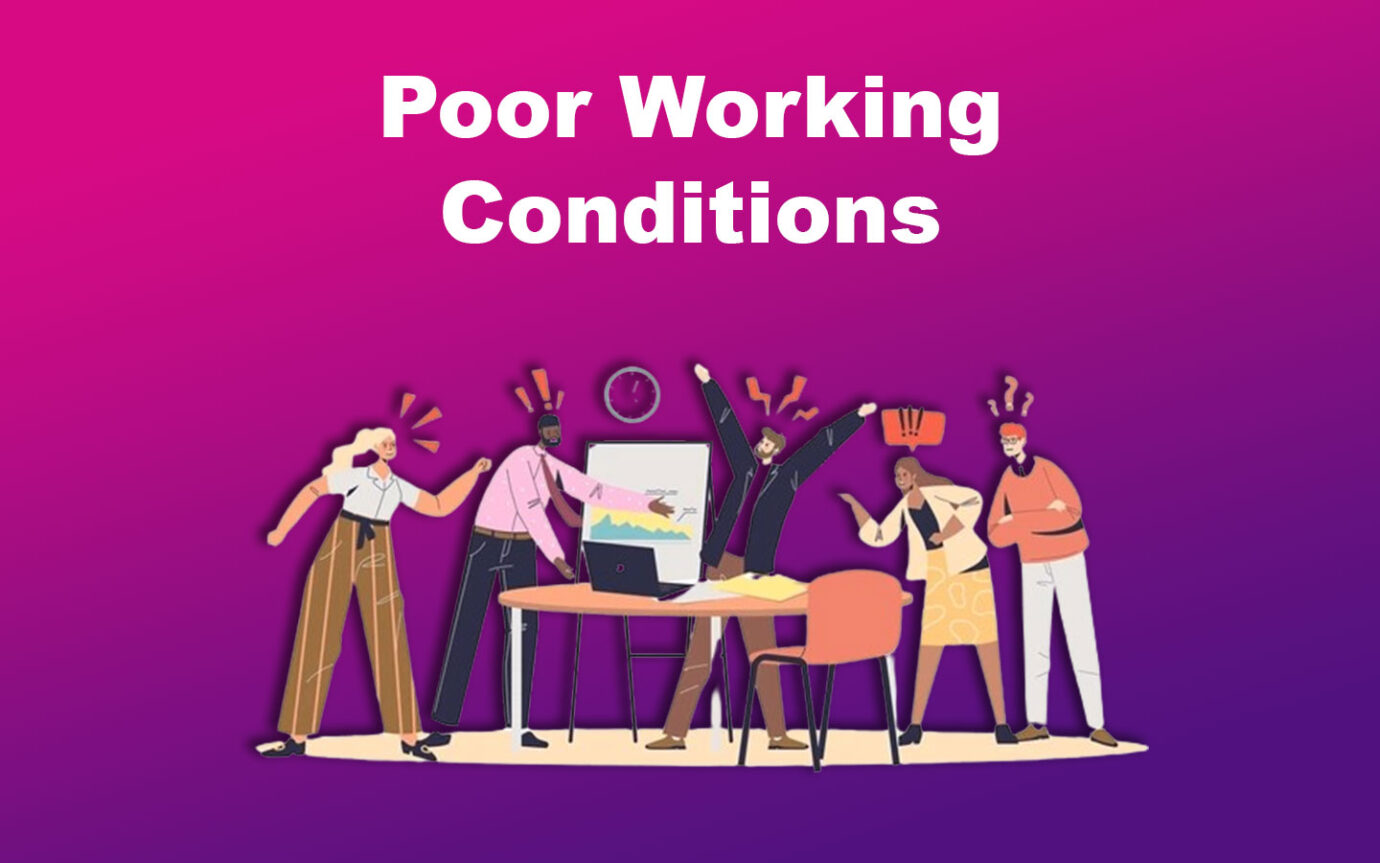Outsourcing or offshoring workers provides various advantages, like streamlining operations and reducing business costs. However, it creates several social, environmental, and economic concerns that the involved parties should consider.

Therefore, examining the ethical issues of outsourcing is essential. It helps avoid legal implications and creates a conducive working environment. Read on to discover what makes outsourcing unethical and how to solve these issues.
What Is Ethical Outsourcing in Business?
In business, ethical outsourcing involves hiring external employees and companies while adhering to environmental sustainability, fair working conditions, and corporate ethics. Ethical outsourcing also follows local and international laws and regulations.
Ethical outsourcing helps organizations achieve cost-effectiveness and enhance trust among stakeholders. The company can channel the saved cost for future use or invest in other business activities.
To achieve an ethical method of outsourcing, businesses must conduct their operations fairly, transparently, and socially responsible. They should also respect the rights and well-being of their outsourced service providers and stakeholders.
Ethical outsourcing goes beyond just earning profits. Instead, it should emphasize integrity, sustainability, and values.
Get more information on ethical outsourcing from LinkedIn.
What Is Unethical Outsourcing?
Unethical outsourcing is engagement in neglectful business practices like exploiting workers through low wages and their rights. Other unethical outsourcing practices include environmental pollution, violating regulations, and lack of transparency with support investors.
Usually, stakeholders or certain employers practice unethical outsourcing to exploit cheap labor and prioritize profits.
Here’s more information on unethical outsourcing from LinkedIn.
Ethical Issues of Outsourcing
Here are the ethical issues of outsourcing:
1. Environmental Pollution

Outsourcing workers can directly threaten environmental sustainability and impact climate change. Some jobs like IT contribute to such issues through the misappropriation of technology.
For instance, there’s increased inappropriate disposal of worn-out tech devices, thus affecting the environment.
According to the E-Commerce Times, inadequate outsourcing knowledge leads to environmental neglect. They attribute this to the newness of fields like IT.
For instance, organizations with operations or workers in different nations can escape ecological taxes. When the authorities intervene with their impact on the environment, they can simply outsource from another region. This helps them prioritize profit while violating regulations.
2. Poor Working Conditions

Another ethical issue in outsourcing is the potential for an unclean and unsafe working environment. Working with suppliers in regions with low labor standards contributes to substandard working conditions.
This happens when seeking a low-rate workforce, which often leads to hiring unskilled individuals.
Outsourcing companies might not consider the safety of their employees’ working conditions in such areas. Therefore, they rarely offer protective measures like health and safety protocols.
Hiring an outsourcing consultant will allow you to find a reputable outsourcing company. This is an effective way to avoid the ethical issues of outsourcing.
3. Compromised Quality

Organizations that seek outsourced service providers that prioritize the quantity of their completed work over its quality risk hiring unskilled labor.
Some outsourcing companies are unwilling to invest in closing loopholes like unskilled labor. This includes foregoing training and onboarding processes to save money.
Differences in time zones can also compromise work quality. For instance, if an outsourced personnel performs a task during their time zone, they cannot actively communicate with their clients working in a different time zone.
By the time they submit an output, the client may find that it doesn’t pass their company’s standards, thus requiring revisions.
Not only can timezone differences compromise quality, but they can also increase the time an outsourced service provider has to work on a task.
Quality assurance outsourcing providers can ensure that you are not compromising your product or service’s quality.
4. Exploitation of Workers

Outsourcing can contribute to exploiting workers to achieve cost efficiency. It happens when companies are hiring from countries with low labor standards. Therefore, outsourcing becomes unethical when employers take advantage of the poor enforcement of labor laws in such regions.
Moreover, physical distance creates a disconnection between the main organization and its workforce. As a result, there’s a lack of accountability for ethical labor practices.
In addition to poor wages, workers get limited working resources and a flawed support system to ensure fair treatment.
If you’re not sure whether outsourcing can benefit your business, here are 5 factors that you need to consider before you outsource tasks.
5. Unfair Competition

Another crucial ethical issue in outsourcing is job displacement for locals. Organizations are increasingly choosing to outsource cheap labor instead of hiring qualified locals.
This can lead to unfair job allocations and contribute to higher unemployment rates. Outsourced workers may have an unfair advantage over equally qualified locals.
Outsourcing can create an unfair playing field for businesses. Some organizations cannot outsource, which means they miss the cost-saving benefits.
Can outsourced administrative work replace office admin positions? Find out here.
How to Solve the Ethical Issues of Outsourcing
Ethical outsourcing issues, such as environmental pollution and unfair competition, can arise involuntarily. This can put companies in a difficult position when trying to cut costs. For this reason, it’s important for businesses to keep the ethics of outsourcing.
Also Read: Artificial Intelligence Annotation
Here are ways to solve ethical issues of outsourcing:
- Comprehend the Ethical Issue.
Understanding the inevitability of most ethical outsourcing issues is essential. This helps you prepare for future inconveniences. - Inform Stakeholders When Outsourcing.
Ensure you are transparent with your clients when offshoring or outsourcing. This helps maintain ethical outsourcing practices, such as transparency and integrity. - Train Outsourced Workers.
You can offer onboarding courses/training despite new workers’ advanced skills. This will update them on the company’s culture, working rules, and policies. -
Adhere to Necessary Laws and Regulations.
Following laws like global labor regulations is crucial. Adhering to laws set in outsourcing regions helps decide workers’ pay.
- Get Third-Party Assistance.
Third-party personnel can be legal or qualified professionals from the region you’re outsourcing from. They help evaluate various working policies, manage the available resources, and manage risks. - Have a Strict Hiring Criteria.
Employees should provide more than their academic qualifications. This includes documentation like licenses, especially for higher job positions. Additionally, background checks should be performed before hiring. - Adapt to the Changing Business Environment.
Changes can involve switching your business’s location or hiring new workers for better productivity. Also, be ready to invest in new operational methods. For instance, companies can invest in new technology to improve quality.
Outsourcing Can Be Unethical, Though Easy to Fix
These are the main ethical concerns surrounding outsourcing and offshoring. The most pressing issues include worker exploitation, unfair competition, and compromised quality. Compromised quality can have a significant impact on a company’s revenue.
Following regulations can help address these ethical concerns in outsourcing. Being open to compromising on costs can also have benefits. This is particularly important when seeking skilled workers or high-quality resources.
